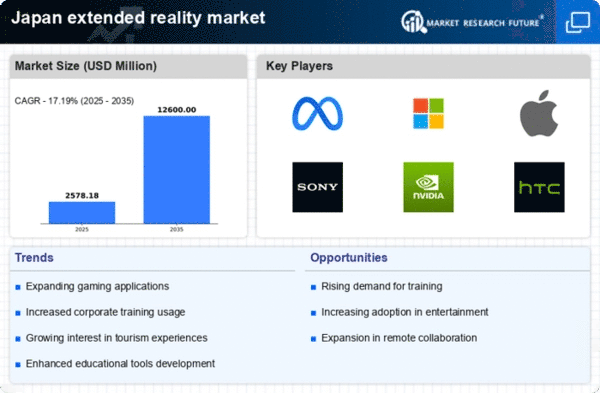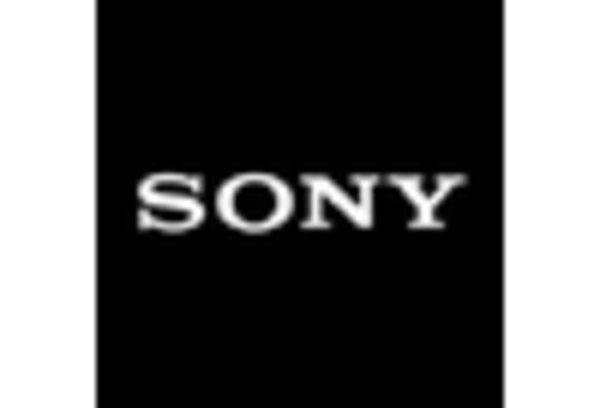Surge in Consumer Demand
The extended reality market is experiencing a notable surge in consumer demand, driven by the increasing popularity of immersive experiences in gaming and entertainment. As of 2025, the market is projected to reach approximately $5 billion, reflecting a growth rate of around 25% annually. This heightened interest is not only limited to gaming but also extends to virtual tourism and social interactions, where users seek more engaging and interactive platforms. The demand for high-quality content and advanced hardware is pushing companies to innovate rapidly, thereby enhancing the overall user experience. This trend indicates a robust potential for growth within the extended reality market, as consumers continue to seek novel and immersive ways to engage with digital content.
Cultural Acceptance and Adoption
Cultural factors play a crucial role in the acceptance and adoption of extended reality technologies in Japan. The population's affinity for technology and innovation, combined with a strong interest in gaming and anime, creates a fertile ground for the extended reality market. As of 2025, surveys indicate that over 70% of Japanese consumers are open to trying XR experiences, reflecting a positive attitude towards new technologies. This cultural acceptance is likely to facilitate the widespread adoption of extended reality applications across various domains, including entertainment, education, and tourism. The interplay between cultural trends and technological advancements may significantly shape the future landscape of the extended reality market.
Government Support and Initiatives
The Japanese government is actively supporting the extended reality market through various initiatives aimed at fostering innovation and development. Programs that provide funding and resources for startups and established companies in the XR space are becoming increasingly common. In 2025, government investments in technology sectors, including extended reality, are projected to exceed $1 billion. This support is likely to stimulate growth and encourage collaboration between public and private sectors, thereby enhancing the overall ecosystem. Such initiatives may lead to the development of new applications and services, further solidifying Japan's position as a leader in the extended reality market.
Integration in Business Operations
Businesses in Japan are increasingly integrating extended reality technologies into their operations to enhance productivity and efficiency. Industries such as manufacturing, retail, and real estate are leveraging XR for training, virtual showrooms, and remote collaboration. As of November 2025, it is estimated that around 30% of companies in these sectors are utilizing extended reality solutions, indicating a growing recognition of its potential benefits. This trend suggests that the extended reality market is not only limited to entertainment but is also becoming a vital tool for operational excellence. The ongoing adoption of XR technologies in business operations is likely to drive further growth and innovation within the market.
Advancements in Hardware Technology
Technological advancements in hardware are significantly influencing the extended reality market. The development of lightweight, high-resolution headsets and haptic feedback devices is enhancing user experiences, making them more immersive and accessible. As of November 2025, the market for XR hardware is expected to account for nearly 60% of the total extended reality market revenue. Companies are investing heavily in research and development to create devices that offer superior performance and comfort. This trend suggests that as hardware technology continues to evolve, it will likely drive further adoption of extended reality applications across various sectors, including entertainment, education, and training.
















